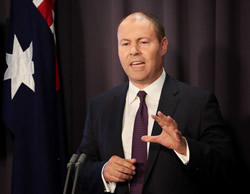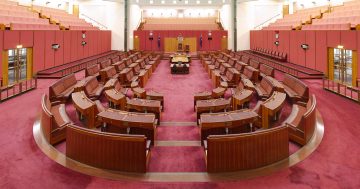Jamie Williamson* says that buried deep within Budget documents are several steps the Government will take to further boost Australia’s financial system, including greater powers for regulators and $11.2 million to enhance super fund member outcomes.
 While far from the headline measures introduced, this year’s budget included numerous tweaks to the financial system’s structure, processes and oversight.
While far from the headline measures introduced, this year’s budget included numerous tweaks to the financial system’s structure, processes and oversight.
Chiefly, the Government is set to introduce a Financial Market Infrastructures (FMIs) regulatory reform package that will provide Australian regulators with the power to pre-emptively identify and manage risks, or intervene in a FMI failure crisis.
Under the reforms, the Reserve Bank of Australia (RBA) will be able to manage a failure at a clearing and settlement facility.
There will also be a facility for the RBA to draw up to $5 billion per event as a last resort measure to ensure the continued operation of clearing and settlement facilities, with any funding to be recovered once a crisis is resolved.
Further, ASIC will be given enhanced supervisory and licensing power, and regulatory powers will be streamlined to ensure system efficiency.
APRA will also receive $9.6 million over the next four years to supervise and enforce the implementation of the Your Future, Your Super reforms.
A further $1.6 million will be given to Super Consumers Australia to support stronger outcomes for super fund members.
The funding for this initiative will be partially met through an increase in levies on regulated financial institutions, the Government said.
Even Kiwis, or at least those now living and working across the ditch are set to benefit, with the Government committing $11 million over the coming four years and $1 million per year thereafter to facilitate the transfer of unclaimed super to KiwiSaver accounts.
And something that isn’t expected to incur any cost, the Government has said it will look to restore previously available regulatory relief for foreign financial service providers who are licensed and regulated in jurisdictions with similar financial systems.
The relief would mean these entities would not need to hold an AFSL to operate in Australia, reducing duplicate requirements.
It will also develop a means of fast tracking the licensing process for foreign financial service providers who wish to establish more permanent operations in Australia.
On the flip side, the Government will provide Treasury with close to $60 million over the next five years to support the delivery of its priorities.
These include Treasury’s engagement with key agencies like ASIC and the Small Business Ombudsman ($49m) and the continued operation of the Financial Adviser Standards and Ethics Authority until December 31 ($2.5m).
*Jamie Williamson is a contributor at the Financial Standard.
This article first appeared at financialstandard.com.au.











